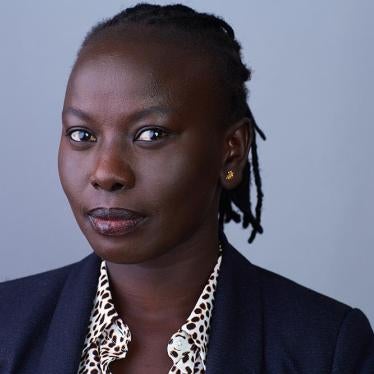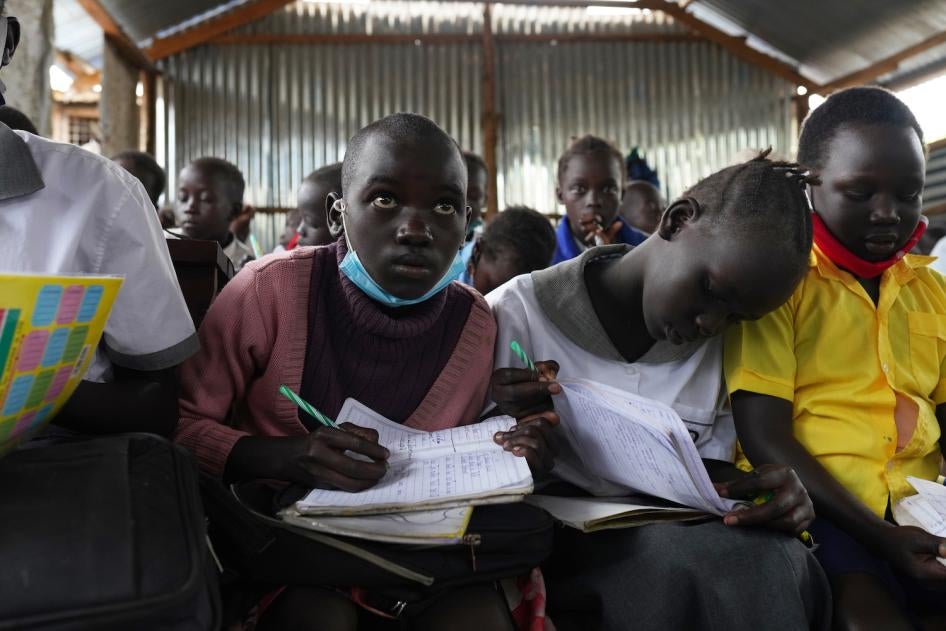Last week, South Sudan’s President Salva Kiir directed relevant government ministries to ensure that primary and secondary education is free throughout the country.
This news could benefit millions of children in South Sudan, but it will need to be followed up with adequate resources and genuine steps for it to make a difference. School tuition and fees constitute one of the most common, although not the only, barrier for South Sudanese children to realize their right to education. An estimated 2.8 million childrenare not attending primary or secondary school, a shocking 70 percent of all school-age children in the country.
South Sudan’s Constitution already guarantees all children free and compulsory primary education and free illiteracy eradication programs. Extending free education to include secondary schooling will offer millions of children life-long benefits.
Secondary education, including technical and vocational training, can empower young people with the knowledge and skills needed to thrive and contribute to their communities. Children with secondary education are more likely to find work as adults, earn more, and escape or avoid poverty. Secondary education can provide young people with essential information to protect their health and well-being. It also promotes resilience and healthy development and protects mental health. Girls with secondary education are less likely to have children early.
Adolescents who do not complete secondary school are more likely to experience the worst forms of child labor, child marriage, sexual violence, trafficking, and recruitment by armed groups.
South Sudan also deserves praise as one of the six African countries with laws protecting pregnant girls’ right to stay in school or resume education after giving birth. However, girls remain less likely to enter school, attend secondary school, and complete secondary education than boys.
The government will also need to ensure that children with disabilities – who often face stigma, discrimination, and abuse at school – are not left behind. It will need to enhance the capacity of teachers and ensure their adequate and timely compensation. It should also fully implement the Safe Schools Declaration, which it endorsed in 2015, promising to protect schools from attack and military use, and to fast-track efforts to end recruitment and use of children by armed groups.
By expanding free education, South Sudan is headed in the right direction, one that improves the country’s prospects for sustainable development. In its 10-year strategic plan for education, South Sudan’s Education Ministry committed to work to increase access to early childhood development. Might free preprimary education be next on the horizon?











